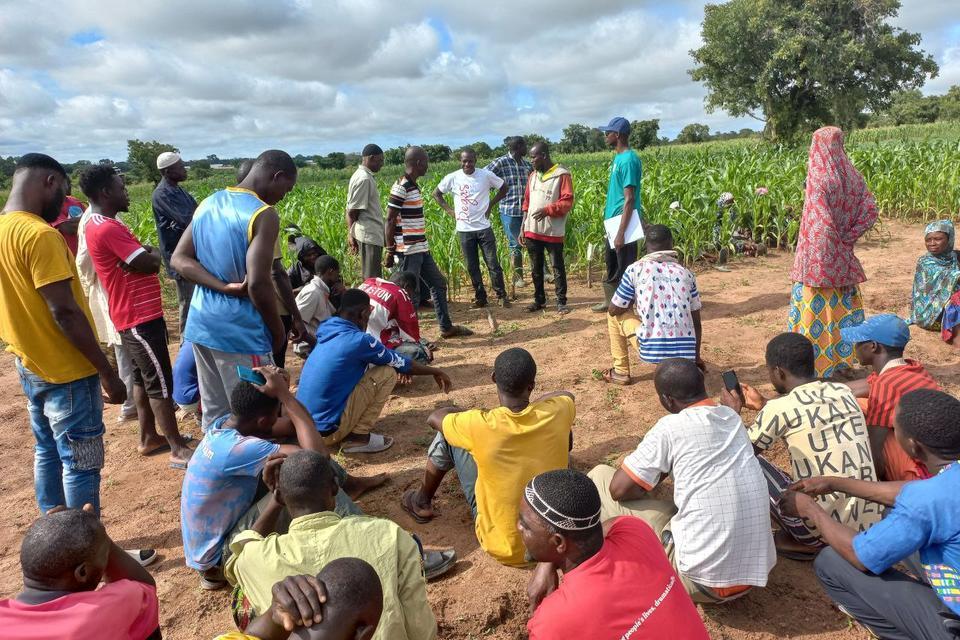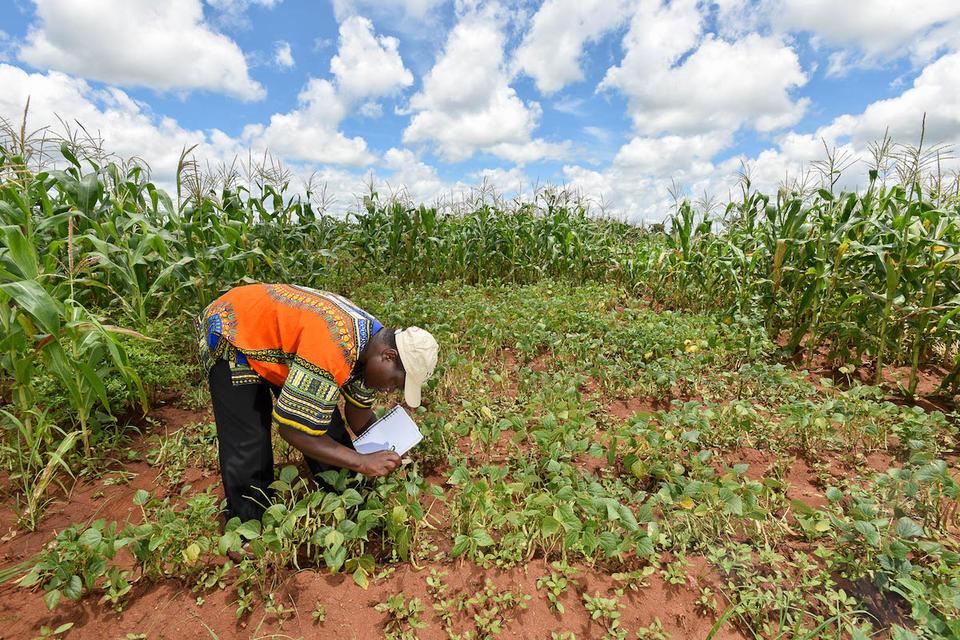Blog Empowering Smallholder Farmers: The Benefits of Bundling Agricultural Recommendations with Insurance, Credit, and Climate Advisory Services
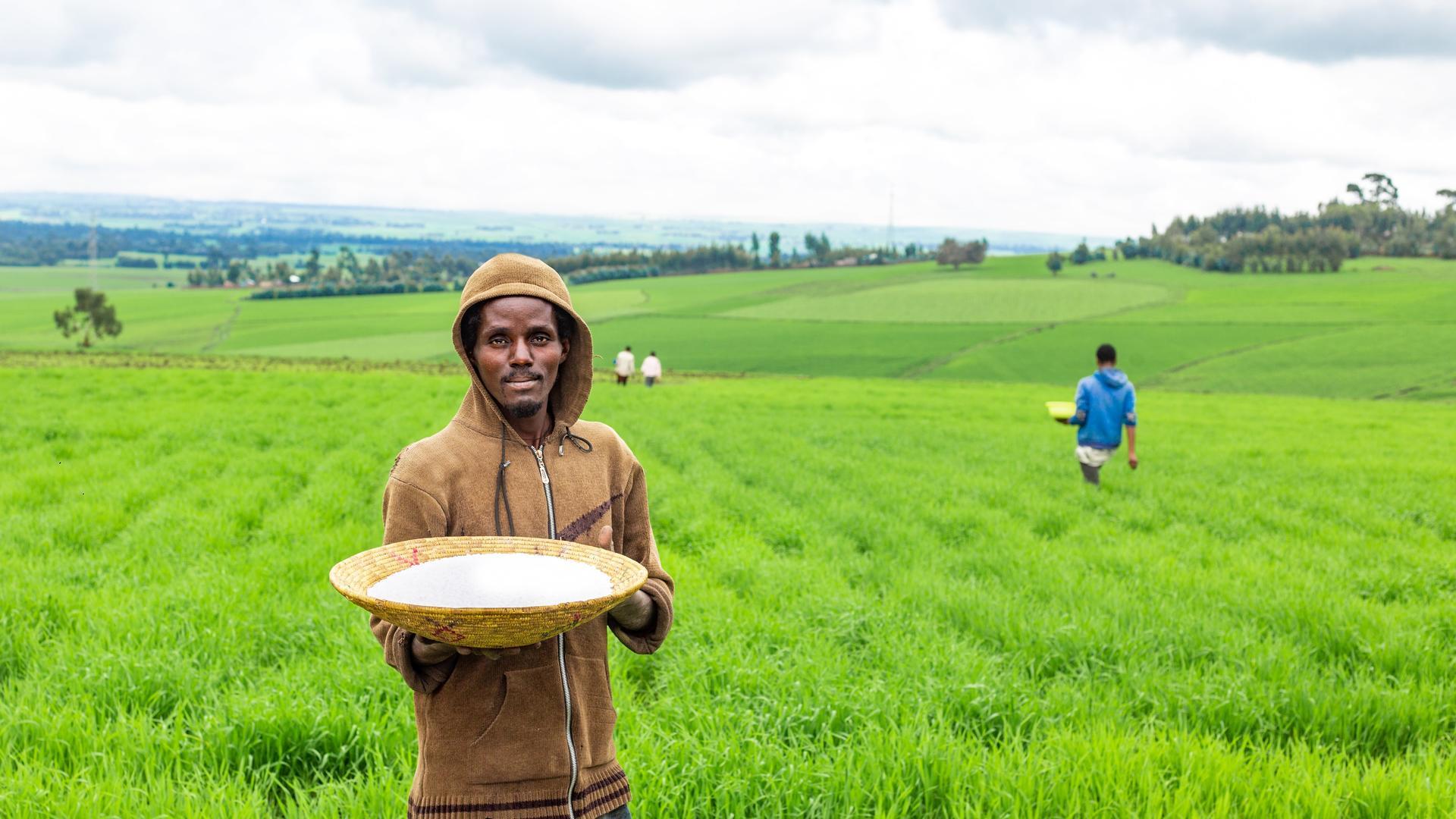
The Alliance of Bioversity International and CIAT has partnered with Green Agro Solution PLC to provide agroadvisory bundling with insurance and credit to smallholder farmers in Ethiopia. The intervention is piloting in two regions, Oromia and Amhara. The goal is to help farmers increase their productivity, income, and resilience to climate change.
By: Mohammed Ebrahim1, Abrahame Endrias2, Lulseged Tamene1, Wondimu Tekle2, Betty Nduku2, Meron Sileshi2, Decha Bedada2 Wuletawu Abera1, Amsalu Tilaye1
1 Alliance of Bioversity International and CIAT, Ethiopia
2 Green Agro Solution PLC (LERSHA), Ethiopia
Limited and blanket application of fertilizer is one of the main yield limiting factors of wheat in the Ethiopian highlands. Blanket recommendation of fertilizer application without considering soil, landscape, agro-ecology, and specific season leads to lower production and inefficient productivity. To address this problem, the Alliance of Bioversity and CIAT has designed a site-specific and season-smart agroadvisory system called NextGen Advisory that guides optimal fertilizer application for wheat in Ethiopia, which also incorporates improved agronomic practices, climate information services, and agricultural investments.
Validated across 277 farmers, the NextGen advisory showed grain yield gain of up to 30% compared to national and local blanket applications (Feyera, et al. 2022). When compared with local farmers’ practices the NextGen advisory showed grain yield gains of up to 38%. While tremendous grain and biomass yields have been observed and other efficiencies are better when the NextGen advisory is compared with the existing recommendations and farmers' practices, a human-centered design analysis showed that wider adoption of the NextGen advisory is constrained by the availability and affordability of fertilizer for smallholder farmers.
Evidence shows that the price of 100 kg of fertilizer has increased from 1800 to 4000 ETB between 2021 and 2023. This more than twofold fertilizer price increase has challenged smallholder farmers' input purchasing capacity and led to insufficient input application, resulting in a reduction in crop yield harvest. The price increment and the demand for fertilizer are also increasing over time,
making it increasingly unaffordable unless innovative strategies are designed to cater to the needs of farmers, including access to financial services.
Considering the above reality, the CGIAR Excellence in Agronomy (EiA) Initiative and the Sustaining Soil Health Initiatives (SSHI) project being coordinated and implemented by the Alliance of Bioversity and CIAT have forgeed collaboration with the Green Agro Solution PLC, (with their agri-tech platform called Lersha), to bundle the NextGen agroadvisory with insurance and credit services to provide funding access for smallholder farmers and enable them apply the recommended advisory. Such endeavor is also expected to facilitate scaling and dissemination of the recommended agroadvisory system. The Lersha and Alliance team have collaborated to piloting the agroadvisory system in two regions of 10 Woredas, namely Oromia (Hetosa, Digeluna Tijo, Munnesa Woredas, and Gadab Asasa Woreda), and Amhara (Moretena Jiru Woreda, Wonberma Woreda, and Gozamine Woreda)
Lersha extracts agroadvisory recommendation via API and translates to advisory to its agents. Using the Lersha Mobile App, Lersha agents create digital farmer profiles that include farm locations to provide location-specific fertilizer recommendations via SMS, audio calls, and follow-ups. Accordingly, 837 (724 men and 113 women) farmers received the location specific fertilizer recommendation of which 725 (615 men and 110 women) of them are enrolled for area yield index agriculture insurance from Oromia and Abay Insurance through the Lersha platform. 42 out of the 725 farmers accessed micro-loan for procurement of farm inputs.
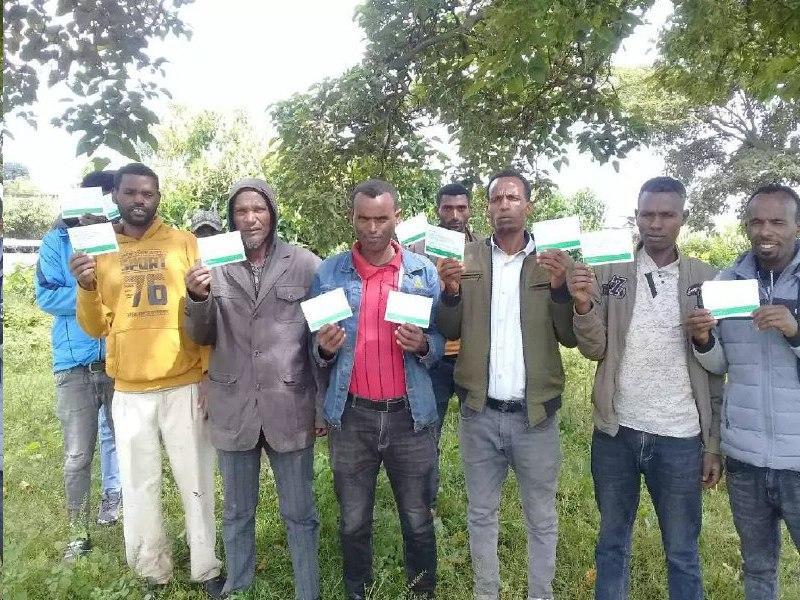
Some selected Lersha agents underwent TOT training on the LSFR as a capacity building measure prior to the pilot phase. A test group consisting of carefully selected smallholder farmers was picked in a bid to track the impact of using the LSFR as opposed to the traditional blanket recommendation. These farmers were trained on the usage of this specialized recommendation after which the pilot was run.
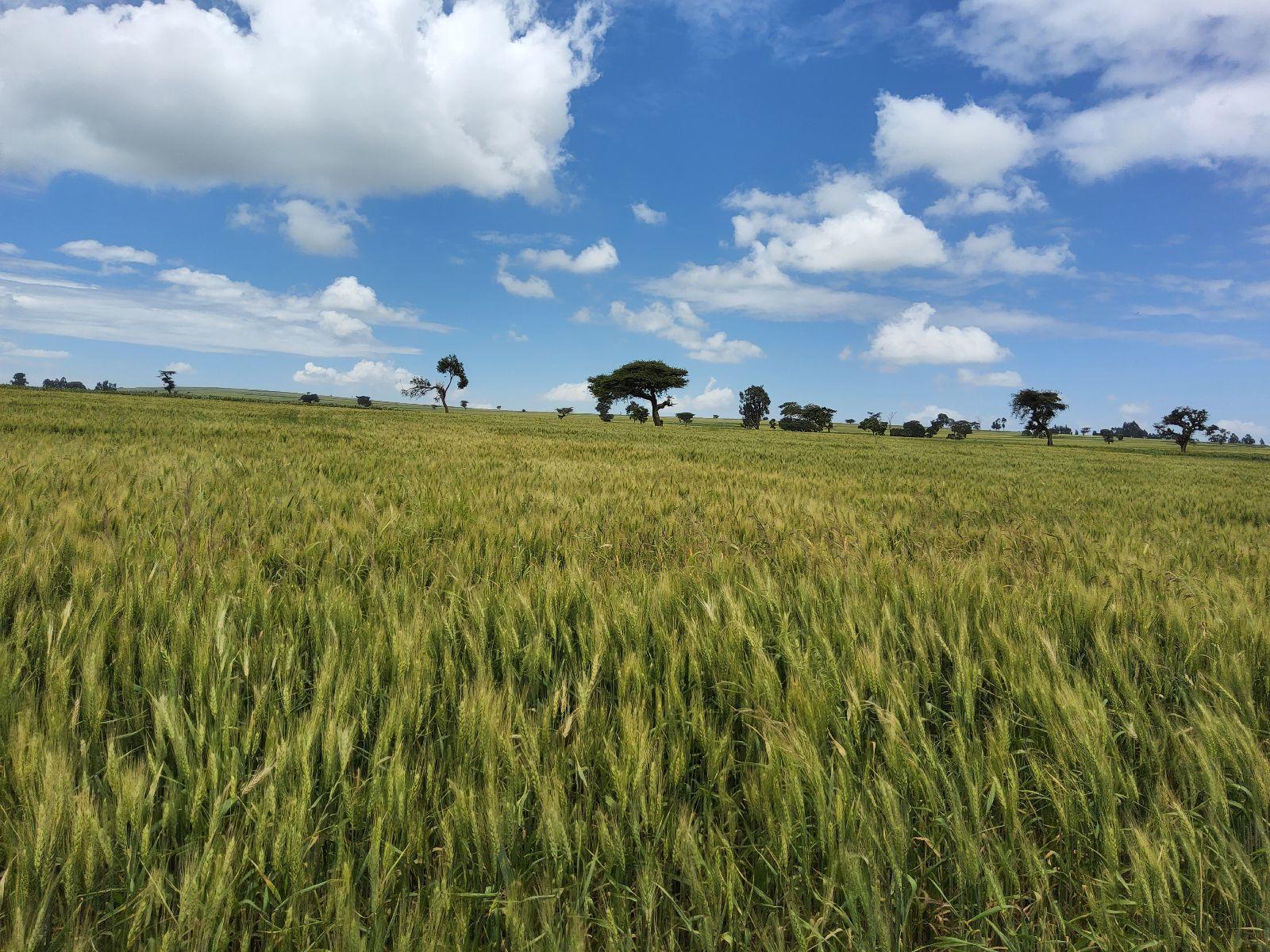
Photo: A farmer field in Sagure Mole Kebele of Digelu Tijo Woreda
On November 4, 2023, Green Agro Solution (Lersha) together with Alliance Bioversity CIAT organized a field day at Xijo Districts of Oromia region. The main of the field day was, to collect learnings on bundling NextGen agro-advisory with insurance and credit, facilitate input access to farmers, enhance adoption, and promote scaling of location-specific and contextualized agro-advisory through extension and Lersha Agents.
We gathered a small group of 37 smallholder farmers, including 14 women, 3 Lersha Agents, 4 Development Agents, 4 Lersha Team members, 1 Oromia Insurance expert, 1 Arsi University representative, 3 media personnel, and 2 district agricultural experts to engage in a round of discussions and experience sharing. A half-day event aimed to assess the observed differences and evaluate the longevity of product usage post-pilot phase. The event also helps to gather firsthand information and insights from farmers into their challenges and opportunities. This feedback from farmers, extension and Lersha Agents, and banks will contribute to improving the building approaches.
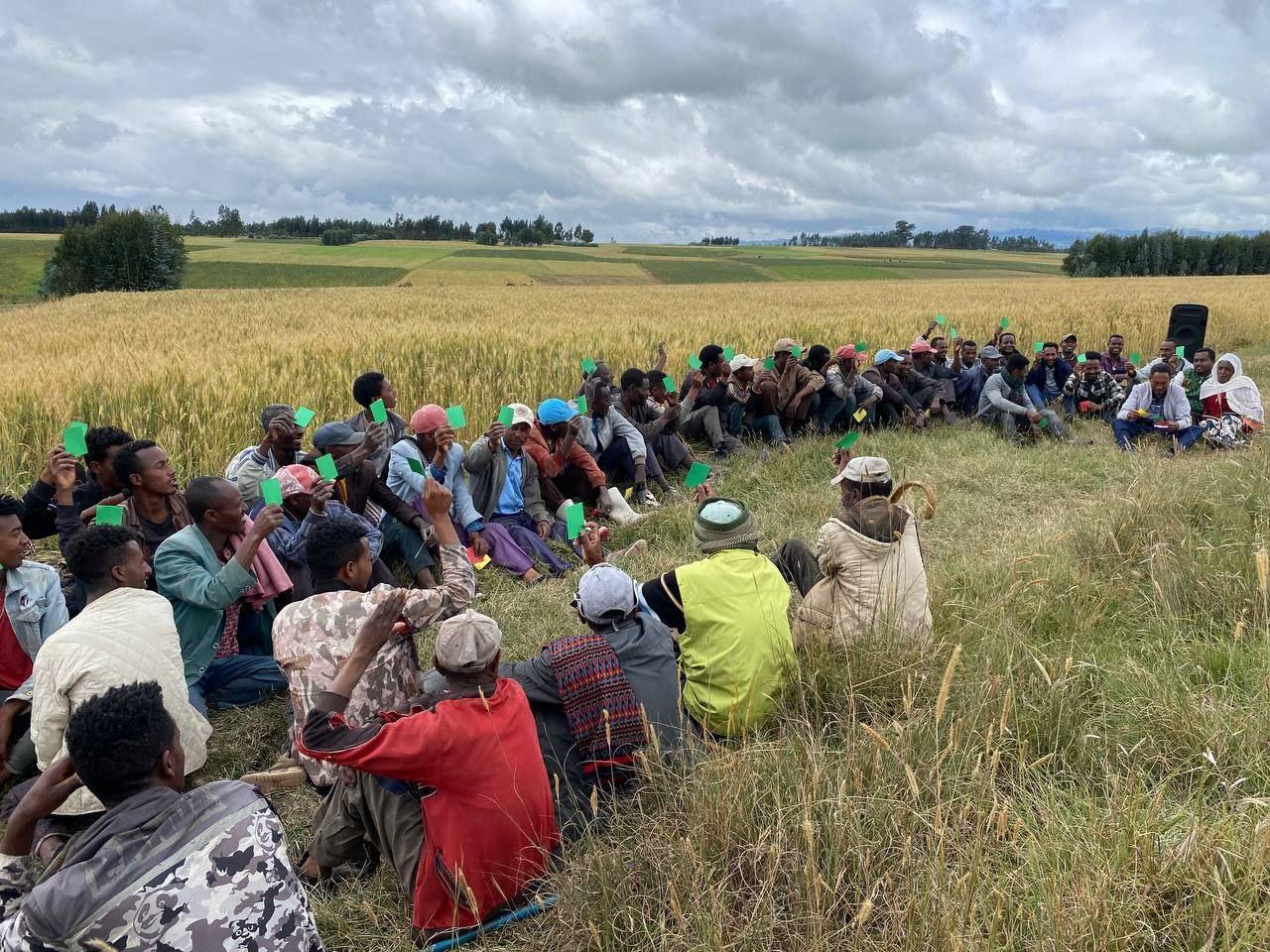
Photo: Farmers during the field day showing green card for the effectiveness of the advisory.
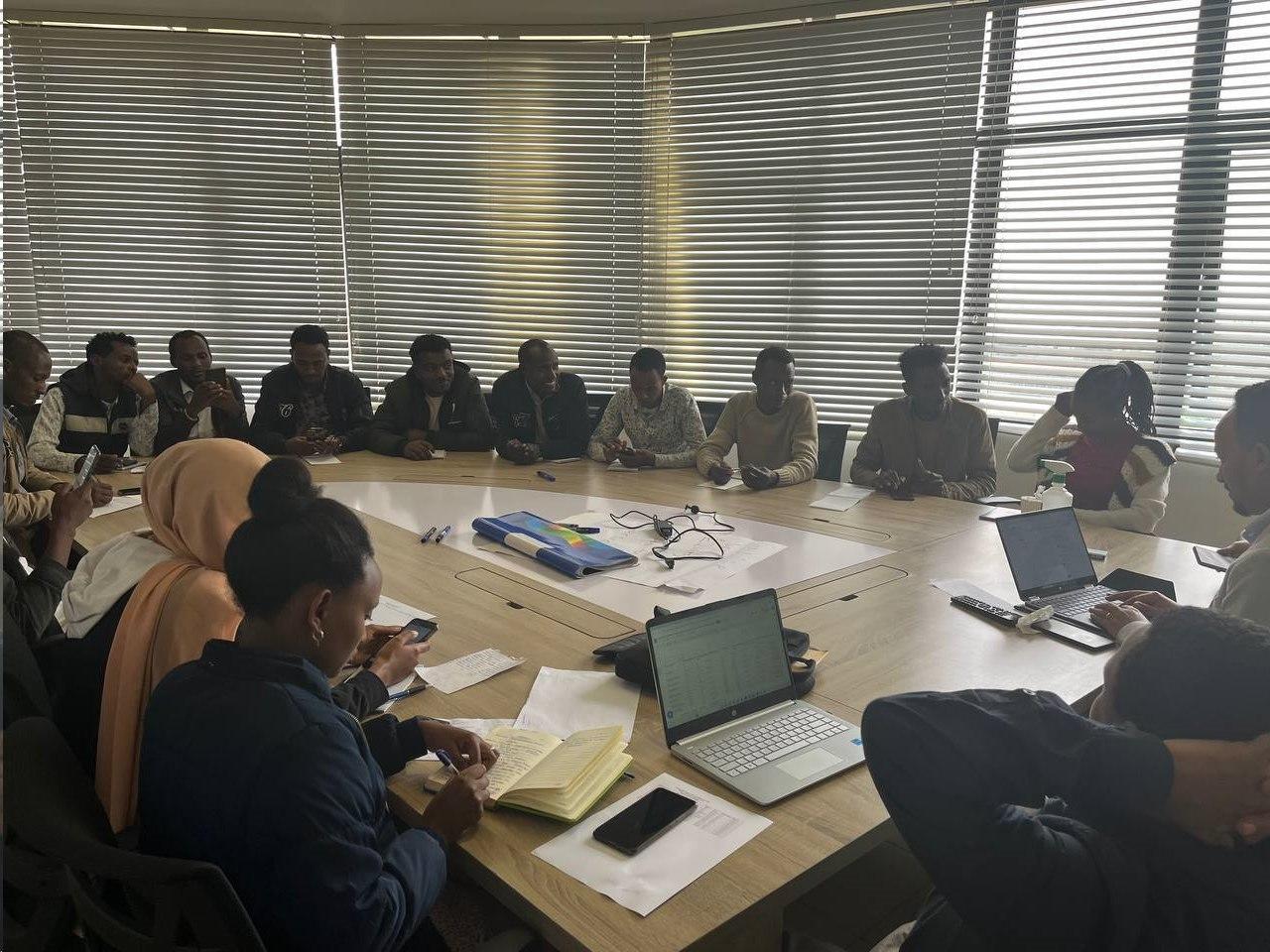
Photo: Lersha training team providing the TOT for the Lersha agent on Geo-location fertilizer application
During the field day, participants shared their practical experiences and insights on how contextualized geolocation fertilizer recommendations have been helping them make better decisions.
The smallholder farmers were instructed to evaluate the impact of the new fertilizer recommendations on their productivity and decision-making compared to their previous practices. They were asked to indicate their assessment using color-coded cards: green for a very high difference, yellow for a high difference, and red for a slight or no difference. All the farmers raised the green card, signifying a unanimous and substantial positive impact of the new recommendations on their productivity. The climate advisory service provided by the Lersha digital platform, which farmers receive every two weeks, has helped them prepare for the upcoming weeks. Farmers praised the effectiveness of weather-based advisory services coupled with insurance and credit, which improved their input access.
Mr. Kelil Wake, the Degelu Tijo District Agricultural office head, has praised the use of technology and innovation to help smallholder farmers make informed decisions based on scientific predictions. He also noted that the combination of location-specific fertilizer recommendations with insurance services has given micro-loan institutions a new level of confidence.
Mr. Kassaye Negassa, a model farmer from Degelu Tijo District, has witnessed firsthand the benefits of using weather-based fertilizer application advice. In the past, he would randomly apply fertilizer to his different plots of land. However, this year, he followed the advice of LETSHA agents and the Lersha call center and applied fertilizer based on the specific needs of each plot. As a result, he is extremely happy with the performance of his fields.
Bundling agricultural recommendations with other services like insurance, credit, and existing services has yielded valuable lessons:
-
Enhanced Adoption of Recommendations: When farmers have the financial assurance to invest in recommended inputs, they are more likely to implement them correctly, leading to higher yields and increased credit repayment capacity. This, in turn, strengthens the interest of financial institutions in bundling input insurance, agronomic practices, and credit.
-
Mitigating Input Cost Risks: Input insurance safeguards farmers against climate-related input cost fluctuations, providing compensation for losses. This risk mitigation instills confidence in farmers to apply the recommended inputs (seed, fertilizer, and agrochemicals), leading to improved crop performance, higher yields, and enhanced credit repayment capacity.
-
Increased Institutional Interest: Credit institutions are increasingly recognizing the value of bundling approaches as they help reduce farmers' crop failures due to inappropriate fertilizer application and climate risks. Bundling mitigates risks for both farmers and credit providers, fostering a mutually beneficial partnership.
In general, input insurance and credit bundling have emerged as a promising strategy to support smallholder farmers in developing countries. By enabling farmers to increase their productivity, improve their incomes, and build resilience to climate change, this approach holds immense potential for agricultural development and rural livelihoods.
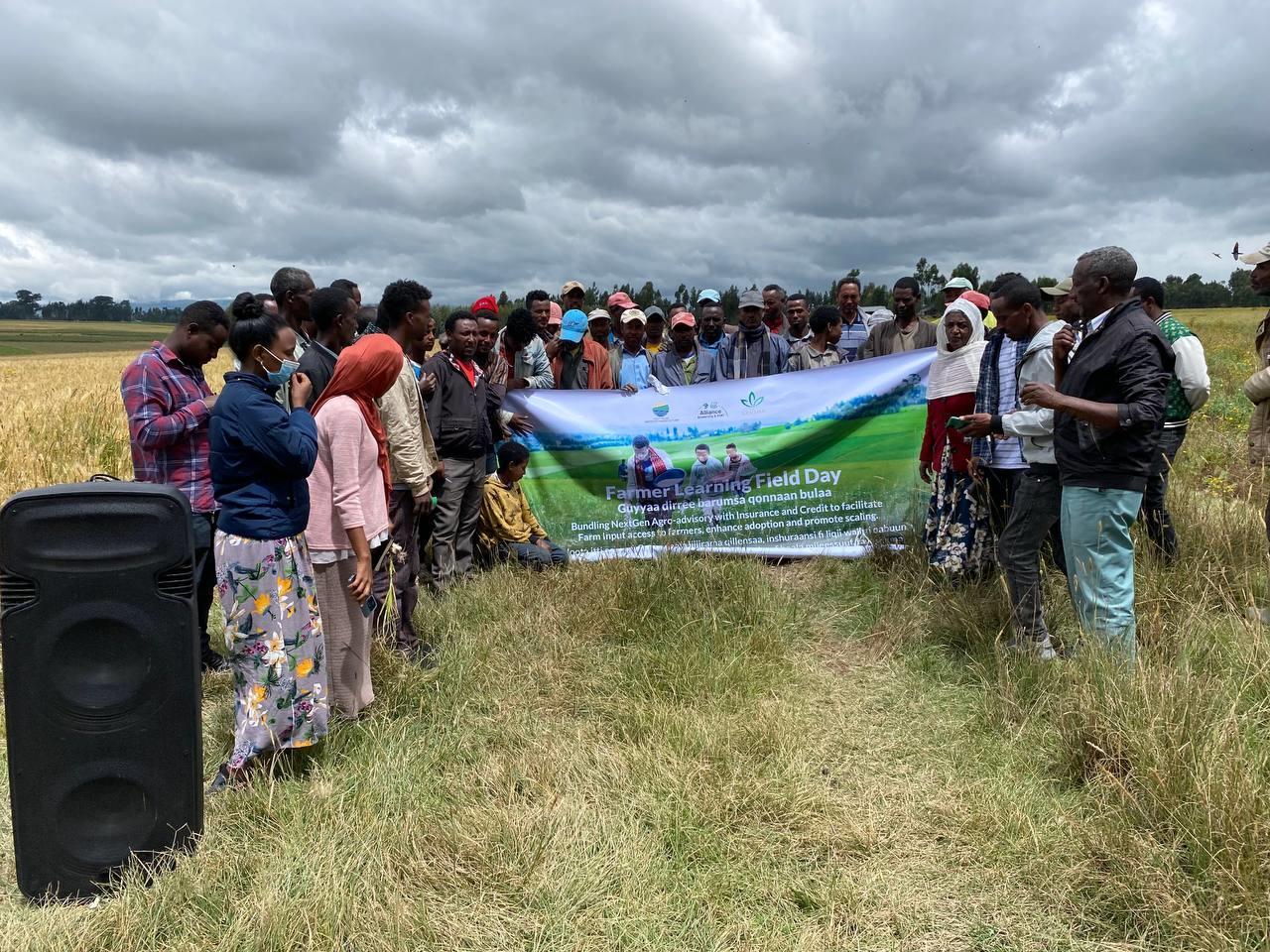
Through bundling agro-climate advisory with access to credit and insurance, the farmers will be able to improve their productivity, increase their incomes, and secure their livelihoods. Our aim is for these smallholder farmers to be leaders of a thriving agricultural ecosystem and for their success to be an inspiration to others in the region.
Acknowledgement
We acknowledge the technical and financial support of the Accelerating Impacts of CGIAR Climate Research for Africa (AICCRA) in implementing this activity. We also acknowledge the technical contribution of the Sustainable Intensification of Mixed Farming Systems (SI MFS) initiative.

